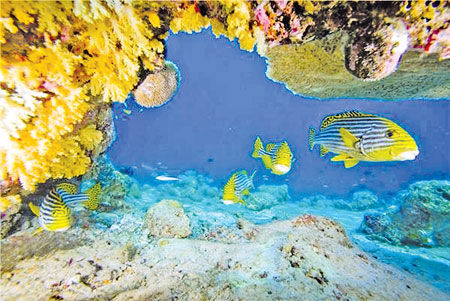|

Climate shift could leave some
marine species homeless
Rising temperatures will force many species of animals and plants to
move to other regions and could leave some marine species with nowhere
to go, according to new research just published in the journal Science.
An international research team, led by Dr Mike Burrows from the
Scottish Association for Marine Science, compared changing temperatures
for both land and sea and from place to place over a 50 year period,
from 1960 -- 2009.The team used the data to project how quickly
populations of both terrestrial and marine species would have had to
relocate to keep up with the changing temperatures. They found that
there was very little difference between movement rates in either
environment.
Dr Burrows explains, 'When temperatures rise, plants and animals that
need a cooler environment move to new regions. The land is warming about
three times faster than the ocean so you might simply expect species to
move three times faster on land, but that's not the case.

'If the land temperature becomes too hot for some species, they can
move to higher ground where temperatures are generally cooler.
That's not an option for many marine species which live at, or near,
the surface of the ocean. When temperatures rise, species such as fish
will be able to move into deeper water to find the cooler environments
they prefer -- but other species, such as marine plants or slow-moving
corals, will have to move further to find suitable habitats and could
become trapped if there are no cooler places for them to go.'
Co-author Dr John Bruno, from the University of North Carolina,
agrees that many marine creatures would have a hard time keeping up with
climate change. He says, 'Being stuck in a warming environment can cause
reductions in the growth, reproduction and survival of ecologically and
economically important ocean life such as fish, corals and sea birds.'
The study also highlights the variation in ocean surface temperatures
within a very small region, which also causes species movement.
Spring-time temperatures in the seas around Scotland, for example,
have arrived around five days per decade earlier on the east coast,
whereas there has been almost no shift in spring temperature on the west
coast.
Dr Burrows concludes, 'The areas where species would need to relocate
the fastest to stay ahead of climate changes are important biodiversity
hotspots, such as the coral triangle in South-eastern Asia.
Our study may help conservationists to prepare for change and protect
future coral habitats.'
-ScienceDaily |

